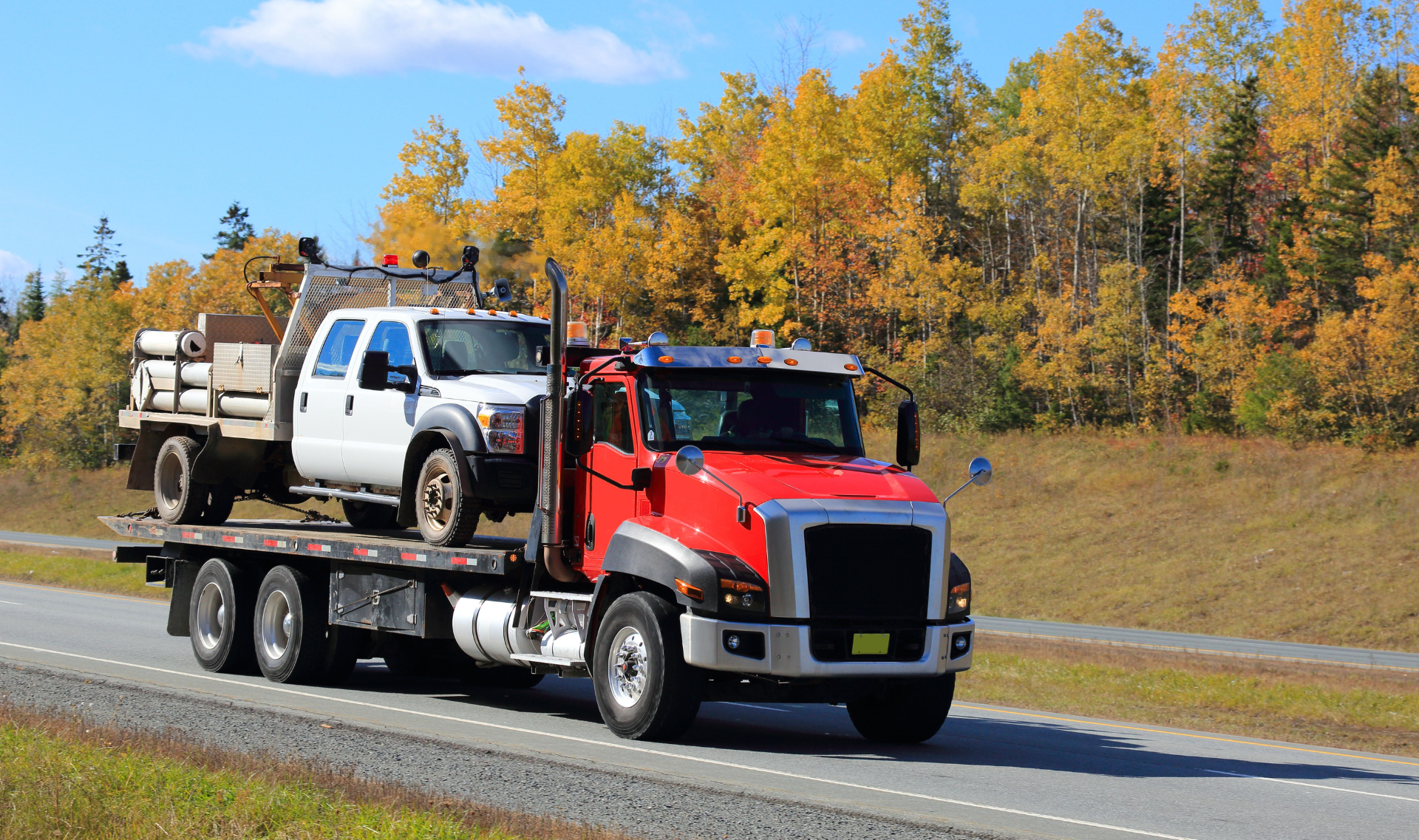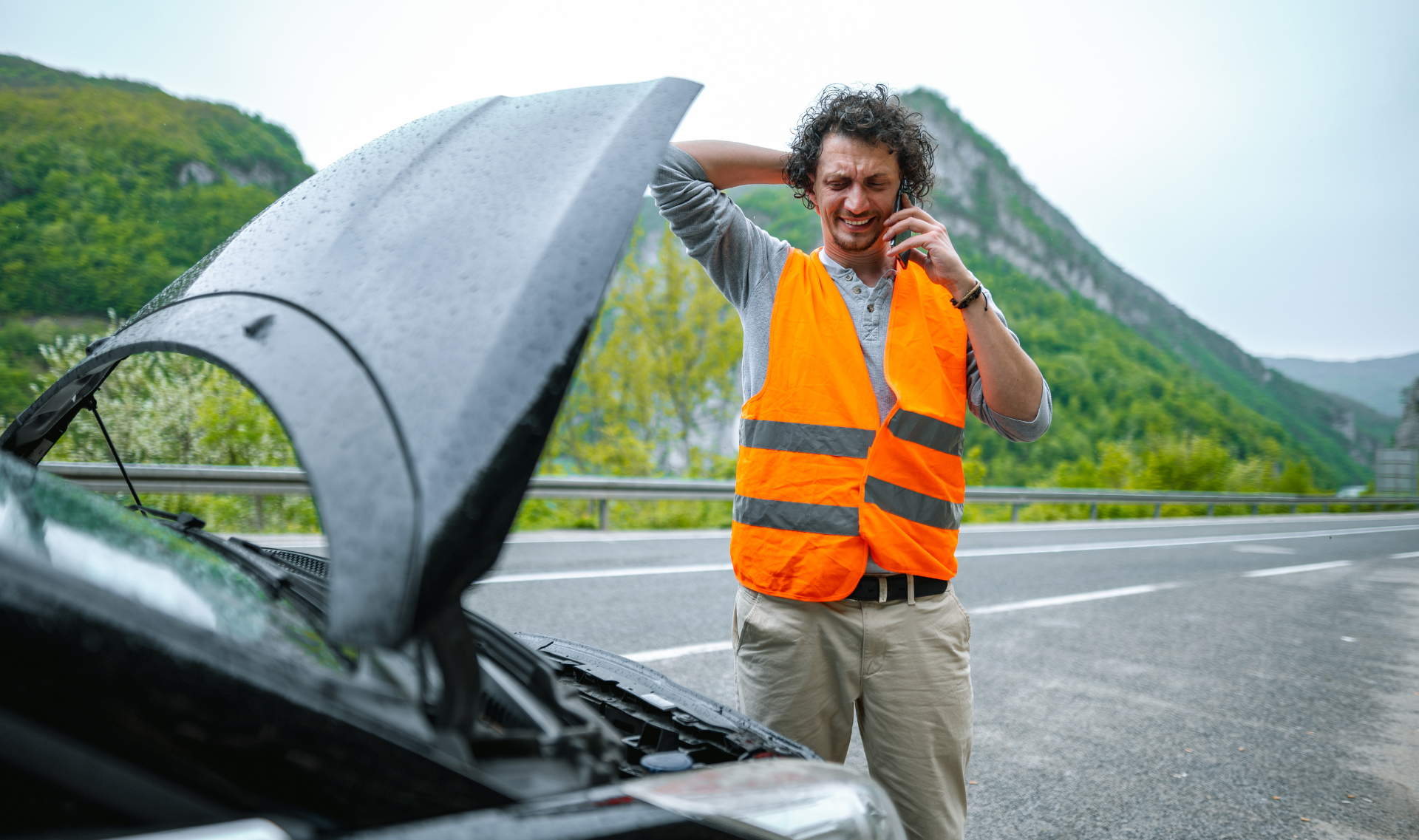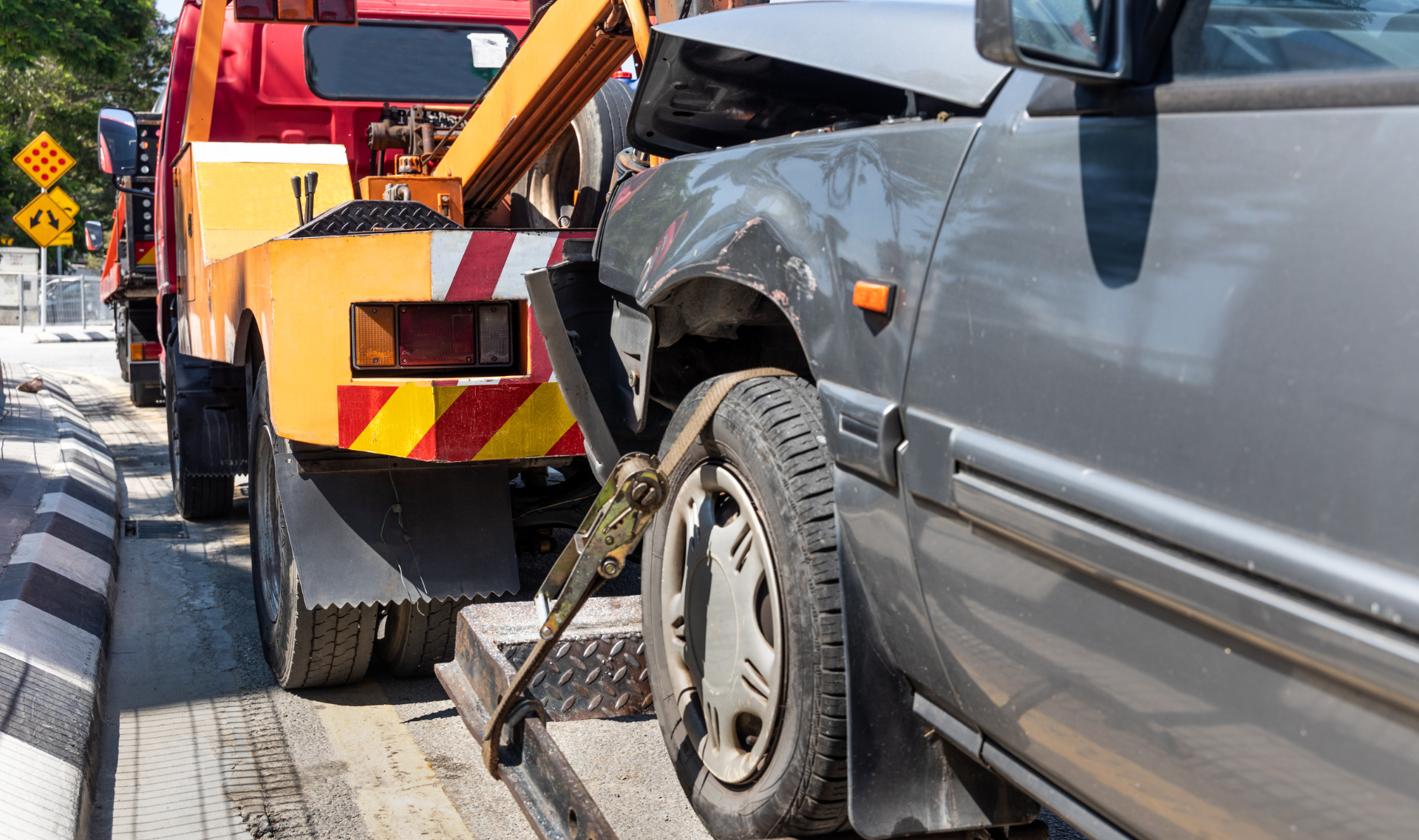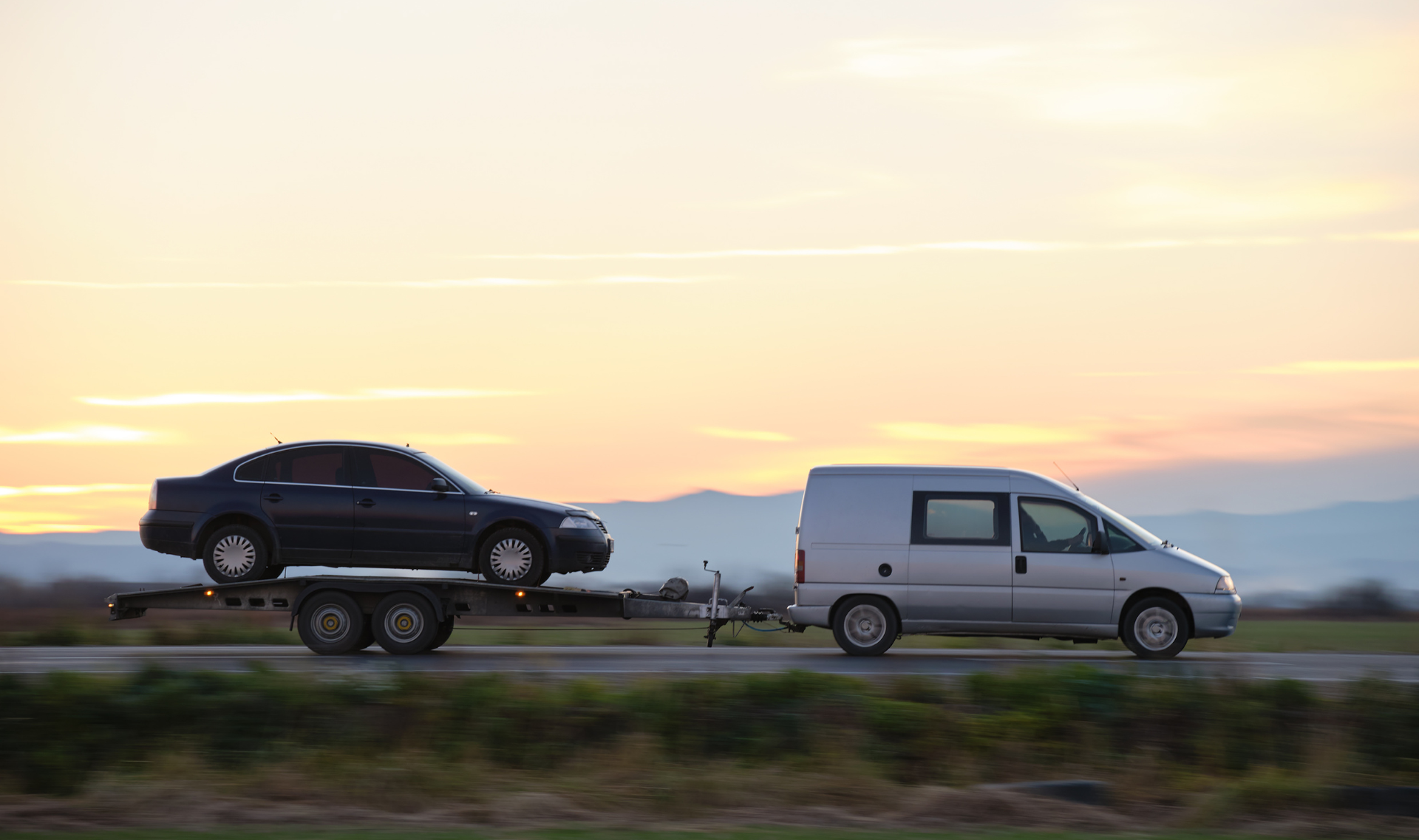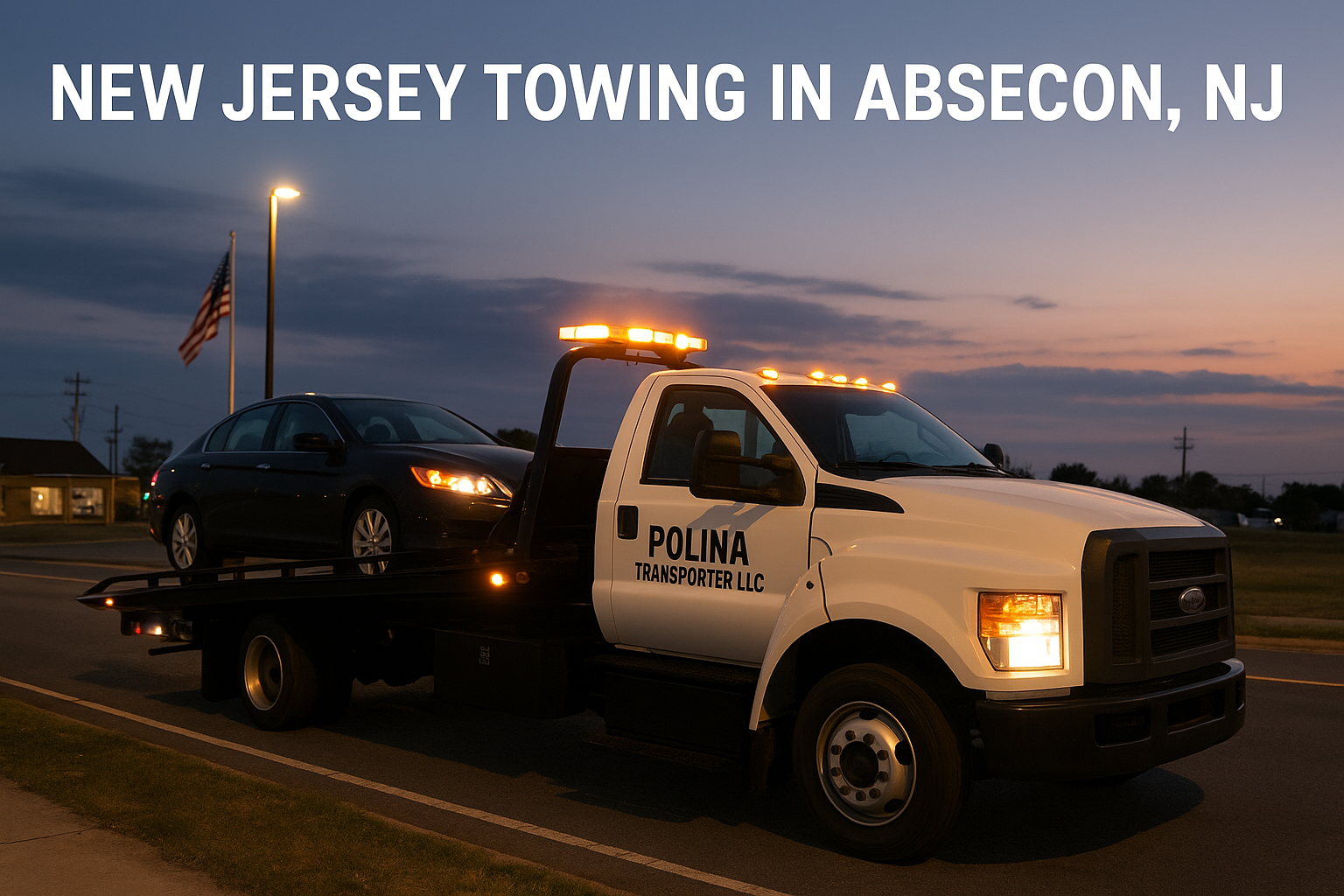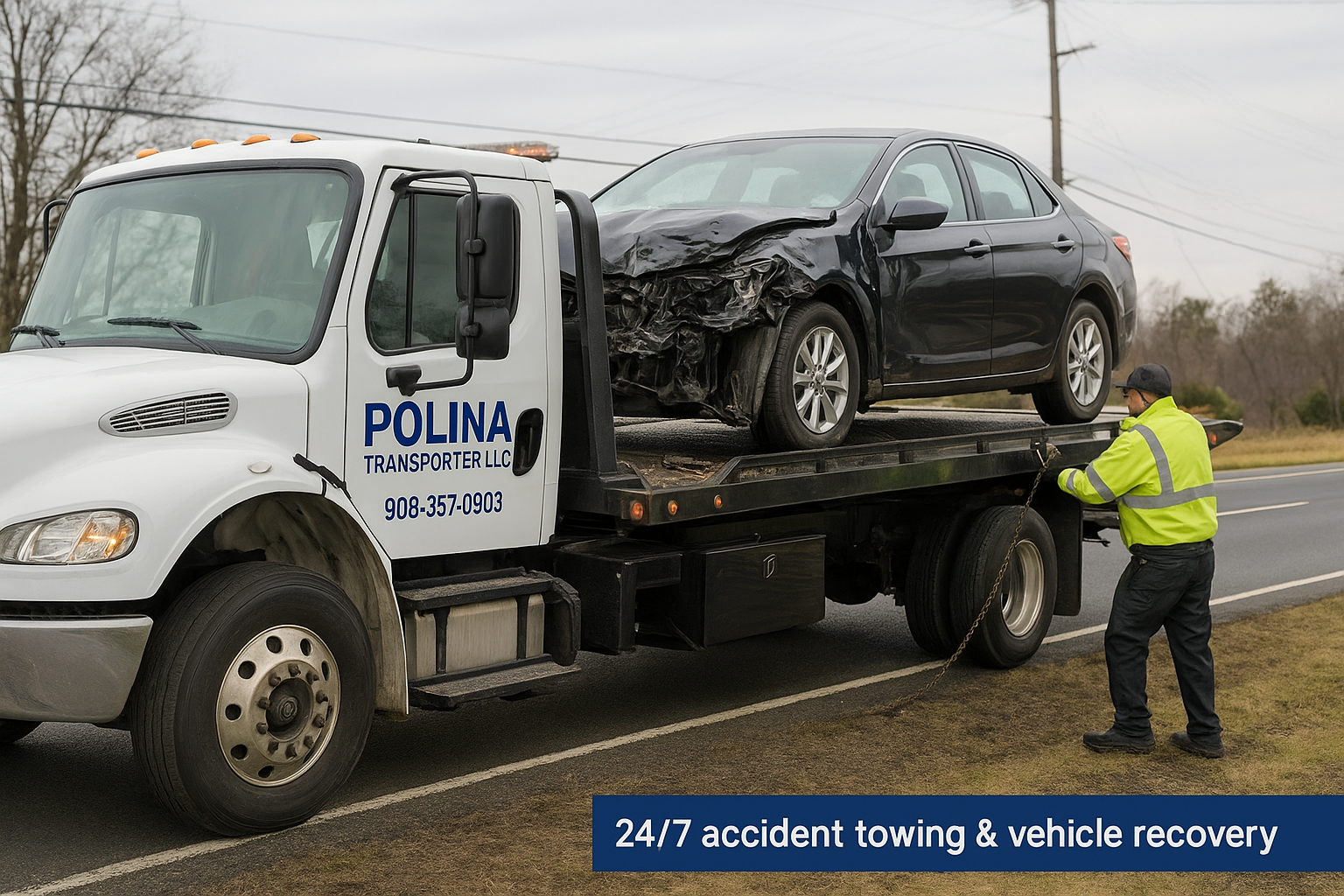A quick, actionable guide for drivers in New Jersey — stay safe, protect your vehicle, and get moving again.
If you’re stranded after a breakdown or in an accident, safety first: move to a safe spot (if possible), call emergency services when needed, document the scene, and contact a trusted 24/7 tow truck service to get you and your vehicle handled professionally. Follow this checklist step-by-step to avoid common mistakes that cost time, money, and claims headaches.
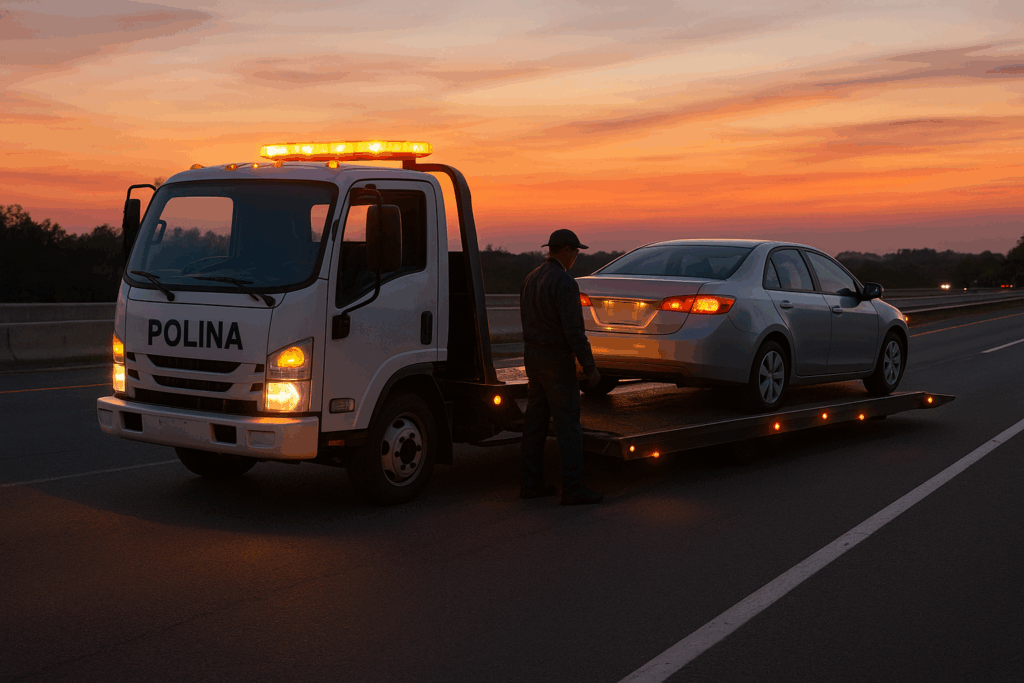
1. Immediate safety steps
1.1. Stop — but do it safely.
If your car starts acting up or you’ve been in a minor collision, steer it out of active lanes if you can. Aim for the shoulder, breakdown lane, or a nearby parking area. If you can’t move the vehicle, stay buckled and turn on your hazard lights.
1.2. Turn on hazards and protect the scene.
Hazard lights alert other drivers. If you have reflective triangles or flares, set them up behind your car if it’s safe to exit. Visibility is everything — especially at night or on busy NJ highways.
1.3. Check for injuries.
If anyone is hurt, call 911 immediately. Even if injuries seem minor, let emergency responders evaluate everyone. Your safety and health override everything else.
1.4. Stay out of traffic.
If it’s safer to exit the vehicle, do so on the passenger side (away from traffic) and wait behind a guardrail or well off the roadway.
2. If there’s an injury or major damage — emergency protocol
- Call 911 for medical assistance and police. The responding officer will file a report — crucial for insurance and towing authorization.
- Don’t admit fault at the scene. Share facts only. Admitting fault can complicate claims later.
- If you can, take photos and videos of damage, license plates, skid marks, surrounding signs, and the overall scene from multiple angles.
3. Practical checklist: what to do while you wait
Do this now:
- Turn on hazard lights.
- Gather vehicle documents: driver’s license, registration, insurance card (leave them in a secure place — don’t share sensitive info to strangers).
- Call your insurer to report the incident if it’s more than a simple breakdown. They’ll advise on coverage and preferred tow options.
- If the car can’t move, call a trusted 24/7 tow truck service. A professional tow operator will safely secure your vehicle and advise on where it will be taken.
- Record the names and badge numbers of police responders and swap contact/insurance info with other drivers if applicable.
- Take photos and short video for documentation.
Why the tow matters:
Towing isn’t only about moving your car. A reputable 24/7 tow truck service will prevent further damage, help with safe recovery, and often coordinate secondary services (storage, repair referrals, jump starts). If you’re in New Jersey and searching for “breakdown checklist NJ,” this is one of the most frequent checklist items.
4. Working with responders, police, and tow companies
4.1. With police
- Be cooperative and factual. Provide your ID and registration when requested.
- Ask how to obtain the police report — you’ll need it for claims.
4.2. With tow companies
- Confirm the tow company’s name, driver name, estimated arrival time, and whether they’ll take the vehicle to your preferred repair shop or an impound.
- Ask for an estimate of towing charges and any storage fees before they disconnect or move your car.
- If you have roadside membership, tell the dispatcher immediately — that may change billing.
4.3. Tow types & when they apply
- Flatbed: safest for heavy damage or all-wheel drive vehicles.
- Wheel-lift: faster, often used for simple tows.
- Winch-out: used when your car is stuck off-road or in a ditch.
As you call for help, mention if your vehicle is disabled in a ditch, overturned, or blocking traffic — this affects the truck type and equipment sent.
5. What to say to dispatch: sample script for a 24/7 tow truck service
When you call a tow service, clear details make a faster, safer pickup. Here’s a short, effective script you can use:
“Hi — I need a tow. I’m on I-95 northbound at mile marker XX, vehicle is a 2015 Honda Civic, grey. We’re in the breakdown lane off the right shoulder. No major injuries, but the car won’t start. Can you send a flatbed? My name is [Your Name]. Please text ETA.”
Key elements to include:
- Exact location (exit number, mile marker, nearest landmark).
- Vehicle details: year, make, model, color.
- Situation: can the car be driven / is it in a ditch / blocking traffic / rollover?
- Service needed: tow, jump start, fuel delivery, tire change, winch-out.
- Contact phone & any membership info (insurance or AAA).
Repeat the phrase 24/7 tow truck service up front if you need round-the-clock help — many NJ tow companies run continuous dispatch.
6. After the tow: insurance, repair, and follow-up actions
6.1. Tow destination
Confirm where your vehicle will be taken. If the tow operator didn’t confirm, call them back before leaving the scene.
6.2. Insurance & claims
- File a claim if needed. Provide police report number, photos, and tow receipt.
- If your policy covers towing or roadside assistance, ask how to submit the bill.
6.3. Repair & rental
- Get an itemized repair estimate before authorizing work.
- If rental coverage applies, arrange for a replacement vehicle quickly. Keep receipts for reimbursement.
6.4. Keep your records
Store photos, police reports, tow receipts, and repair invoices in a folder or digital backup — essential for claims and tax purposes if any expenses are deductible.
7. Printable “breakdown checklist NJ”
- Hazard lights ON ✅
- Move to safe location if possible ✅
- Call 911 if injuries or danger ✅
- Take photos of the scene ✅
- Exchange contact & insurance info ✅
- Call your insurer ✅
- Call a 24/7 tow truck service ✅
- Note police report number & tow company info ✅
- Keep all receipts & photos ✅
8. Helpful enhancements & tools
- Emergency text template for friends/family:
“Car trouble on I-95 NB near exit 9. Pulled to shoulder. Waiting for tow (ETA ~). Police on site. I’m safe.” - Quick list of what not to do: Don’t admit fault; don’t sign anything you don’t understand; don’t accept a tow without confirming destination and price (unless directed by police).
- Questions to ask your tow operator: Where will you take my car? What type of tow truck will you use? What’s the total cost and storage rate? Will you connect with my insurer?
9. Author & review box
Author: 24/7 Tow Truck Service NJ Roadside Recovery Specialist — 10 years of experience in vehicle towing, roadside service, and transport logistics across New Jersey.
Reviewed by: Polina Transporter LLC — Operations Team (verified service review).
Contact for service: Polina Transporter LLC, (908) 357-0903, polinatransporterllc.com
10. Related reading & next actions
- How to choose the right tow company in New Jersey (ask about flatbed vs wheel-lift, insurance billing, storage fees).
- What to keep in your vehicle emergency kit (basic tools, first-aid, reflective triangle, phone charger, flashlight).
- Roadside membership vs. standalone towing — when each makes sense.
Next actions: Save this page link, add Polina Transporter LLC to your phone contacts, and print the one-page checklist for your glove box.
11. FAQ
Q: Do I always have to call the police after an accident in NJ?
Q: Will my insurance cover the tow?
Q: What’s the difference between a flatbed and wheel-lift tow?
Closing
When you’re dealing with a breakdown or accident in New Jersey, think: safety, documentation, and professional help. Use the short “breakdown checklist NJ” above, photograph everything, get a police report when required, and call a trusted 24/7 tow truck service to handle recovery and transport. If you want, I can convert this into a printable one-page PDF or a shareable checklist image sized for printing and mobile — tell me which format you prefer and I’ll generate it now.

